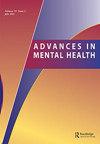Mental health walk-in clinics for children and families: a provincial survey
IF 1.4
Q3 PSYCHIATRY
引用次数: 3
Abstract
ABSTRACT Objective Mental health walk-in clinics (MHWCs) provide unscheduled and immediate support to children and families and remove common administrative barriers. This study explored the implementation of MHWCs across Ontario, CA. Method A brief provincial survey was conducted to identify agencies that provided MHWCs, which were then invited to complete an in-depth survey. The in-depth survey questions were formatted as multiple choice, yes/no, Likert scale, and open-ended questions, taking 20–25 min with the option of online or phone-based completion. Results A total of 18 (86%) agencies participated in the in-depth survey between September 2020 and April 2021. MHWCs are being used to provide timely and accessible services, as well as to serve as a point of intake. MHWCs are provided in different locations (e.g. agencies, schools) using different modalities (e.g. consulting break) and approaches (e.g. cognitive behavioural therapy, narrative therapy, solution focused therapy). Most agencies quickly adapted to COVID-19 restrictions by providing virtual MHWCs. The most common reasons for implementing MHWCs were to reduce waitlists, the strong evidence base, and an effort to meet families’ needs. Different benefits and challenges associated with the implementation of MHWCs were reported. Discussion The results of this provincial study help better understand the implementation of MHWCs and how agencies adapted to COVID-19 and associated restrictions.儿童和家庭心理健康无预约诊所:一项省级调查
【摘要】目的心理健康无预约诊所(MHWCs)为儿童和家庭提供不定期的即时支持,消除常见的行政障碍。本研究探讨了MHWCs在安大略省的实施情况。方法进行了简短的省级调查,以确定提供MHWCs的机构,然后邀请这些机构完成深入调查。深度调查问题的格式为选择题、是/否、李克特量表和开放式问题,耗时20-25分钟,可选择在线或电话完成。结果在2020年9月至2021年4月期间,共有18家(86%)机构参与了深度调查。妇幼保健中心被用来提供及时和方便的服务,并作为接收点。在不同的地点(例如机构、学校)提供MHWCs,使用不同的模式(例如咨询休息)和方法(例如认知行为疗法、叙事疗法、以解决方案为重点的疗法)。大多数机构通过提供虚拟mhwc,迅速适应了COVID-19的限制。实施妇幼保健中心的最常见原因是减少等候名单,有强有力的证据基础,并努力满足家庭的需要。报告了与MHWCs实施相关的不同效益和挑战。这项省级研究的结果有助于更好地了解妇幼保健中心的实施情况,以及各机构如何适应COVID-19和相关限制。
本文章由计算机程序翻译,如有差异,请以英文原文为准。
求助全文
约1分钟内获得全文
求助全文

 求助内容:
求助内容: 应助结果提醒方式:
应助结果提醒方式:


